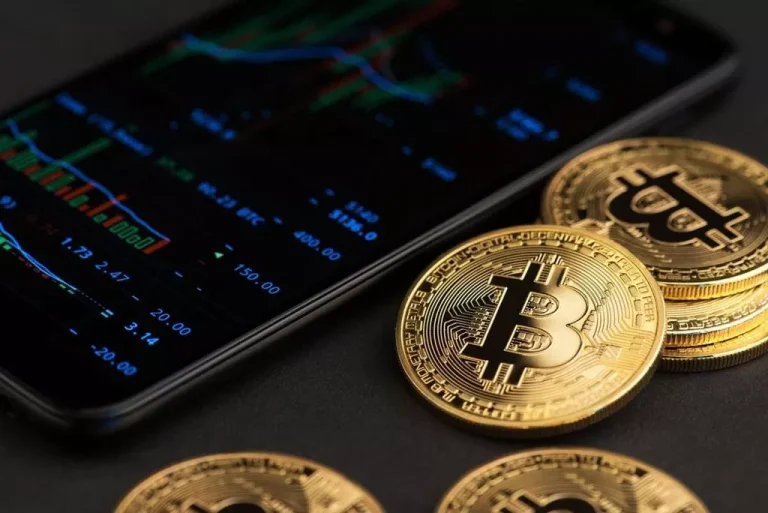NDFs, by their very nature, are probably the most priceless to markets the place traditional forex buying and selling is restricted or impractical. This creates a niche yet important demand, allowing brokers to capitalise on the spread between the NDF and the prevailing spot market rate. With the best threat management methods, brokers can optimise their profit margins on this section. As we’ve mentioned above, bodily settlement of the asset never takes place in NDF trading. Two parties agree to settle the variations in fee, between the agreed value on contract and spot rate, in money, ideally in US dollar. The incontrovertible truth that these could be non deliverable forward traded in India and abroad makes it much more difficult to understand.
Applications Of Non-deliverable Forwards
Everyone desires to maximise the return on funding on their respective investments. For discovering essentially the most profitable investment method one tries investing in traditional methods like gold, land, etc, and fashionable methods just like the inventory market, commodities market, investing in Equity, derivatives, and forex market. Most Indians imagine that the Indian Currency market is proscribed and extremely regulated as it requires plenty of documentation, KYC particulars, etc. Thirdly, offshore market is much less regulated and highly liquid, which means it can cannibalise the stringent home market as traders shift to NDF market to evade government rules. These contracts are over-the-counter deals; quoted for a short period between one month and one 12 months. The contract mentions a foreign money pair, notional quantity, fixing date, settlement date, and NDF rate.
Buying And Selling Ndf Contracts In The Offshore Market
- Tamta’s writing is both professional and relatable, ensuring her readers achieve useful perception and information.
- These contracts are usually settled in offshore currency markets, facilitating trades that contain currencies restricted from buying and selling outdoors the nation.
- Indian entities enter into NDF contracts with offshore counterparties, agreeing to purchase or sell a certain amount of INR at a predetermined exchange fee on a future date.
- The non deliverable forwards market is a financial market that gives a platform for hedging and speculating in currencies that are not freely convertible.
- Instead, the 2 events concerned agree on a specified currency change fee for a future date, and at maturity, they settle any revenue or loss based mostly on the difference between this agreed price and the current market (or spot) fee.
Suppose one party agrees to buy Japan’s Yen (sell dollars), and you resolve to buy US dollars (sell Japan’s Yen), then you can enter into an NDF inside the non-deliverable forward market. In this case, assume that the agreed price is 11.5 on US dollars 1 million and the fixing date is two months. In the seek for diversification, Indian traders think about numerous asset classes. But, the search ends with forex buying and selling for investors who seek quick and excessive returns. There has been an immense rise in interest in this area, and as a result, the volume of currency buying and selling in India. However, some investors consider that the Indian forex market is extremely regulated and involves cumbersome documentation, extensive Know-your-Customer requirements, and inflexible rules and tips.
Synthetic Foreign Foreign Money Loans
However, what units NDFs aside is that they don’t culminate in the bodily delivery of the forex at the contract’s end. Instead, the discrepancy between the NDF price and the fixing rate is settled in money between the contracting events. Understanding how non deliverable forwards are priced is crucial for buyers and businesses engaging in worldwide transactions.
What Is The Difference Between Forward And Ndf?
Onshore foreign money markets are sometimes positioned within the country where the forex is issued and are ruled by the central financial institution and government of that nation. Banks, financial establishments, and individual traders sometimes conduct onshore foreign money buying and selling utilizing native currency accounts. Onshore forex trading trade rates are generally determined by the supply and demand for the forex within the nation. The onshore market is the local currency market of the country during which the vendor has authorized residency. For example, the Indian foreign exchange market will be the onshore market for Indian residents.

If the trade price between the Brazilian real and US dollar declines over the six-month interval, the investor will obtain a fee from the counterparty to the contract to compensate for the loss. Retail buyers, monetary establishments, firms, and governments all use currency buying and selling to purchase and promote currencies for a variety of reasons, together with international commerce, funding, and speculation. Currency merchants should have a stable understanding of the market, together with the elements that affect change charges, the dangers involved, and the tools and techniques obtainable to handle these dangers. A non-deliverable forward (NDF) is a cash-settled, short-term forward contract primarily used in forex buying and selling. Unlike conventional ahead contracts, the place the actual currency is delivered, NDFs are settled in money, which implies that the notional quantity of forex is never exchanged. Instead, the two parties concerned agree on a specified currency trade rate for a future date, and at maturity, they settle any revenue or loss primarily based on the difference between this agreed price and the current market (or spot) price.
In forex buying and selling, traders will purchase one foreign money and concurrently promote one other forex, with the aim of taking benefit of the change fee difference between the 2 currencies. For example, a dealer would possibly purchase US dollars with Euros, anticipating that the worth of the US dollar will increase relative to the Euro. If the trade fee rises as expected, the trader can sell US dollars and buy back Euros, taking improvement of the difference in exchange charges. Spot traders, arbitrageurs, exporters and importers, scalpers, positional dealers are a few of the key individuals within the NDF market. Big gamers usually enter each onshore and offshore foreign money markets at the similar time.
For instance, in India, you can have a forward contract for currencies, that are exterior the specified list by stock exchanges. In certain situations, the charges derived from synthetic international foreign money loans via NDFs may be extra beneficial than instantly borrowing in international foreign money. While this mechanism mirrors a secondary currency loan settled in dollars, it introduces basis risk for the borrower. This risk stems from potential discrepancies between the swap market’s change rate and the house market’s price. While debtors could theoretically engage instantly in NDF contracts and borrow dollars individually, NDF counterparties often choose to transact with particular entities, sometimes these maintaining a selected credit rating. A non-deliverable ahead (NDF) is a cash-settled, and normally short-term, forward contract.

This buying and selling happens within offshore foreign money markets, situated past the jurisdiction of the trader’s home country. Consequently, NDF transactions take place outside the regulatory purview of the trader’s home market. The NDF market operates by exchanging money flows between two events primarily based on the NDF price and the spot value. These contracts are typically settled in offshore foreign money markets, facilitating trades that involve currencies restricted from buying and selling outside the country. NDFs convert income and losses into freely traded currencies in each nations.
While trading in such funds take place outside the homeland, they can’t be delivered and therefore need to be netted and settled in a free forex on due dates. A forward contract, also identified as forwards, is a non-public settlement between two events to buy or promote the underlying asset at a predetermined time at a specific price. You can know concerning the profit or loss accruing from a forward contract only at the date of settlement of the contract. You can have a forwards contract for buying and selling in different OTC derivatives, such as shares, commodities, and so on.
A non-deliverable ahead (NDF) is a two-party currency derivatives contract to trade cash flows between the NDF and prevailing spot charges. The non-deliverable forwards market operates by permitting two parties to trade money flows primarily based on the NDF price and the current spot worth. The settlement is for one party to give the opposite celebration the difference ensuing from the change so as to fulfil the terms of the contract. India is liaising with different emerging-economy international locations on a plan to coordinate intervention in offshore currency markets blamed for fuelling a foreign money rout over the previous three months, the Reuters information company reported on 30 August.
This leads to a misconception that their revenue potential is affected in the long term. Just write the bank account number and sign in the software kind to authorise your financial institution to make payment in case of allotment. Investment in securities markets are topic to market dangers, learn all of the associated documents carefully earlier than investing. Expectations about future foreign money movements play a significant role in NDF pricing.
NDFs are widely used by Indian buyers in excessive volumes, making the NDF market in India a dynamic one. However, it’s advisable to seek the guidance of a monetary advisor, corresponding to IIFL, to navigate tax and authorized obligations effectively. Consider one celebration agreeing to buy Japanese Yen (selling dollars), while another get together opts to purchase US dollars (selling Japanese Yen) by way of an NDF throughout the non-deliverable forward market.
For example, if a rustic’s foreign money is restricted from transferring offshore, it will not be possible to settle the transaction in that currency with somebody outdoors the restricted country. However, the two parties can settle the NDF by changing all profits and losses on the contract to a freely traded currency. They can then pay each other the profits/losses in that freely traded forex.
In a Deliverable Forward, the underlying currencies are bodily exchanged upon the contract’s maturity. This means both events should deliver and receive the precise currencies on the agreed-upon rate and date. On the other hand, an NDF doesn’t involve the physical trade of currencies. Instead, the difference between the agreed NDF price and the prevailing spot rate at maturity is settled in cash, typically in a serious forex just like the USD. This cash settlement characteristic makes NDFs particularly helpful for hedging exposure to currencies that face buying and selling restrictions or are not simply accessible in worldwide markets. In distinction, DFs are extra suitable for entities that genuinely need the bodily delivery of the foreign money, corresponding to businesses involved in worldwide trade or investments.
Read more about https://www.xcritical.in/ here.